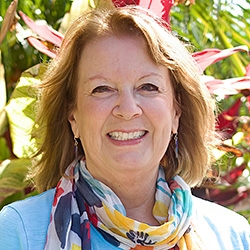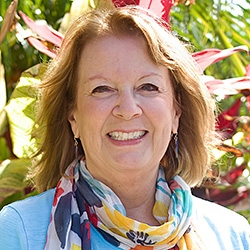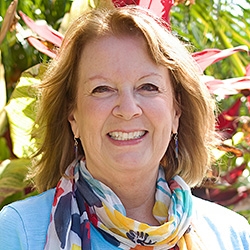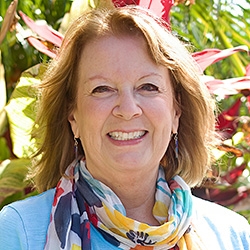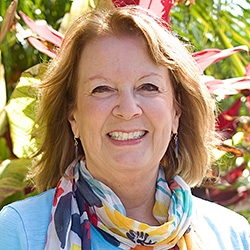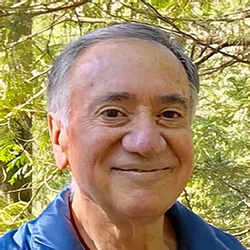

Search Results: authenticity
-
In life, relationships, and organizations, authenticity is the bedrock of effectiveness. It can give rise to effective dialogues, information flow, intimacy, accountability, decision making and follow through. NVC can give us more tools to live with rigor around our authenticity...
-
Trainer Tip: When we are authentic about who we are, and our preferences, we give everyone and ourselves a better opportunity to open up dialogue about how to meet our collective needs better. We simply express our truth, and in that way we value our own needs as much as those of others.
-
Trainer Tip: Sometimes the people in our lives don’t yet have the skills to speak directly about what they want. When this happens we can make guesses about how they feel and what they want. This can lead to greater connection and chances we all can be more satisfied with our interactions.
-
When we're on the receiving end of pain-stimulating assumptions, a microaggression, or prejudice --when we're reactive and resultingly have self-doubt, guilt or shame in ourselves-- is it possible to be intensely authentic while holding care for everyone in the situation? Can we effectively do this even as a third party witnesses to these things? Self-empathy, empathy, and a commitment to authenticity have become essential tools I need to keep sharpened in my toolbox if I am to show up and do the work I value in this world.
-
Jori and Jim Manske offer writing practices to help us become more firmly grounded in the authorship of our lives. That grounding helps us share ourselves with others more authentically and vulnerably(scary honesty)
-
Trainer Tip: Censoring oneself to maintain peace may seem easier, but it actually requires significant energy. You can free up that energy you use to deny and stuff down your feelings, needs, desires, truth, and figure out and adjust to what others want. Embracing authenticity and expressing true feelings and needs can lead to a liberating experience, unlocking joy, love, and endless possibilities.
-
- Discover how to translate NVC into your natural, authentic voice
- Embody your values through tone, presence, and nervous system attunement
- Learn the art of repair and returning to love when things go off track
- Finally, be able to drop the script and trust your internal compass in the moment!
-
Dear friends,
#UnlockYourAuthenticVoice
This has been on my mind lately. What does it mean to unlock my authentic voice? How do I talk about things that matter to me without creating emotional distance between myself and others? I’ve found this especially challenging after the US presidential election this month— half the voters are devastated by Donald Trump’s election, and the other half are elated. The extremes are vast. Sometimes imagining a coming-together feels hopeless.
-
CNVC Certified Trainer Miki Kashtan offers 3 steps we can take to access and express our deepest authentic expression.
-
-
-
Our craving for love, acceptance, and approval can lead us to show only parts of ourselves and hide others. This lack of authenticity breeds disconnection and mistrust, leading to those very needs not being met. Once I accept myself, being authentic is easier. And then people in my life can love me for who I really am, warts and all.
-
Kelly Bryson explores courageous honesty and how truth shared openly deepens connection.
-
How can we respond when we’re horrified by what someone says? How can we deepen our connection to our humanness and authenticity when the impact is hurtful? Read on to see examples of the three steps of "calling out", "calling in", and "calling forth".
-
Making a decision or boundary that invites someone to be honest about their feelings can be difficult. Remember that lack of authenticity may be due to lack of awareness, inner conflict, or fear of conflict, rather than dishonesty. Offer empathy and reassurance and invite more conversation. Approach with compassion and curiosity to naturally invite more honesty.
-
Trainer Tip: In Nonviolent Communication, we see expressing honesty as a gift of our authenticity, and a chance for others to support us in getting our needs met -- this can flourish and deepen our relationships. We can notice and act on opportunities to be honest with the components of OFNR (Observations, Feelings, Needs, and Requests).
-
It can be difficult to be authentic when that means saying no. So how do we say no in a way that invites people to listen? Here are our four top tips for finding the courage to say no.
-
Reducing overwhelm requires you to reconnect with your authentic choice, be present and compassionate with what's happening, heal trauma, and interrupt the trauma response. Read on for ways that may help you reconnect with your choice, presence and more on trauma.
-
Trainer Tip: Do you sometimes feel lonely and disconnected from others? If so, look at how you may be participating in supporting that outcome and what you can do differently. For instance, if you want support or connection - but prioritize looking composed no matter how sad, hurt or angry you feel, you may shield yourself from authentically and vulnerably asking those things. Instead, make those requests.
-
We invite you to dive into this voyage, where you and Robert will swim ever deeper into the Spiral of Life, coming face-to-face with your divine Life Force – that essential living energy that permeates all.

Quick Links
Subscription Preferences
Stay In Touch!
Looking for ways to keep up with NVC Academy news, get special offers, free resources, or words of inspiration? Here are five ways to stay engaged:


